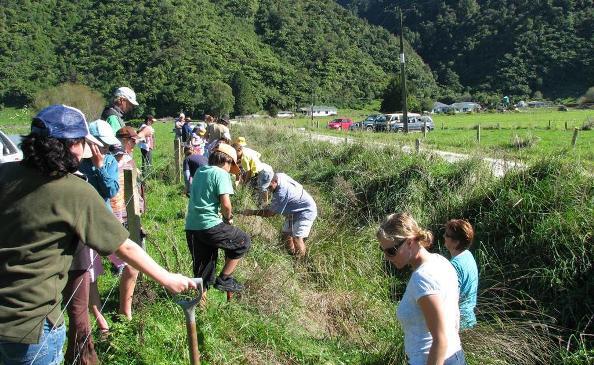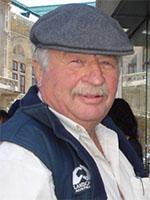Rob Youl - Challenges of Landcare International
Rob Youl, an army colleague of Bob Slater and retired forester who chairs Australian Landcare International (ALI), firstly outlined Landcare operations in Australia.

This community environmental movement, comprised of thousands of volunteers, started in Victoria in 1986 and went national in 1989. A government initiative, it is community-controlled. Landcare fosters on-ground projects by local and regional groups to conserve, enhance and better utilise natural resources: water, soil, biodiversity. It works to mitigate climate change and promotes sustainable farming, litter management, recycling and passive recreation and so on, at its best on a bold landscape-scale. Landcare works on farms, in cities and towns, on the coast and in the Outback. The 6000 groups across Australia often form into networks that operate as community enterprises and employ co-ordinators to maximise volunteer output and efficiency. The well known Landcare logo has commercial value to many major businesses and has generated millions in income for projects and community education.
In various ways Landcare has spread to over 20 other countries. NZ landowners found the concept appealing in the mid 1990s. The Australian government helped Landcare develop in the Philippines and South Africa, and later spread in East Africa, with assistance from NGOs. NGOs and individuals have catalysed groups in Indonesia, Sri Lanka, Iceland, North America, Fiji and imminently in Japan. Rotarians and ALI have introduced Tonga to Landcare. Interestingly Germany launched its Landcare movement just before but quite separately from us in mid 1986; in contrast it rarely looks outside its borders.
Rob briefly described projects in Africa and Asia and concluded that the Commonwealth could use Landcare as a diplomatic tool to help get things done in developing countries and fight climate change, building on our experience and human resources.
Asked whether the Direct Action program was relevant to Landcare, Rob said that it ought to be, but it was hard to know as so many details remained unexplained. Moreover the Green Army, although laudable on the surface, was very short-term and limited. Reflecting afterwards, whilst submitting these notes, Rob stated the government doesn't seem to realise that Landcare is waiting in the wings to do major revegetation across the country that could generate meaningful jobs and sequester vast quantities of carbon. Indeed the pre-Budget word is that its funds will be halved. On a brighter note, maybe ALI can help Melbourne South Rotary with its Cambodian project?

